Tosh Berman's Blog, page 235
March 25, 2014
March 25, 2014

March 25, 2014
I arrived in Los Angeles yesterday, and now it’s 5:21 in the morning, and I can’t think straight whatsoever. The flight from Tokyo to Los Angeles was a total pleasure, due that I got to watch all three episodes of the third season on the plane of “Sherlock." I’m obsessed with this show because I think (at least for me) it really a series about relationships more than narrative. Not saying there is not a robust story appeal to the program, but what is more important are the relationships between Holmes and Watson, Holmes and Moriarty. Watson with his wife, Holmes and his brother and so forth. I’m a huge fan of Moriarty, because I am always rooting for the villain. I feel the same way for Walter White. I’m always in that weird situation, where I have to defend White as a character I like to various people, who are totally offended by him. But I truly think he has good qualities as a human being. Not a “respectable” human being mind you, but he strikes me as a realistic person in an “odd” circumstance in his imaginary life.
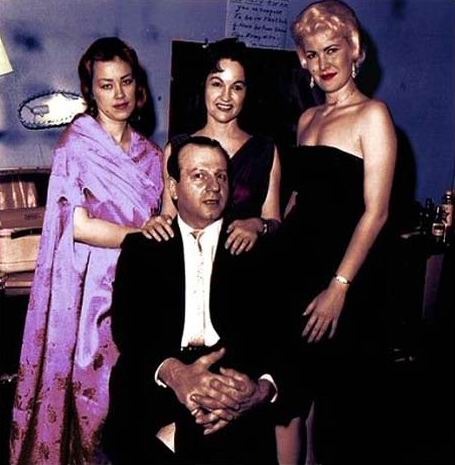
Jack Ruby, who shot Lee Oswald, is also a person of interest for me. His background life is fascinating, and the fact that he is easily considered to be part of a conspiracy with respect to the assassination of President John F. Kennedy. To be frank I have no interest in conspiracy theories, I am more in-tuned to the fact that maybe Ruby did the killing just out of the blue. More of a mood thing than just being a part of a thought-out plot. I am a firm believer that ‘shit happens. ' He was one of those people who had his ‘moment, ’ and he did what he did, that will identify him to that specific moment, when he shot Oswald live on TV.
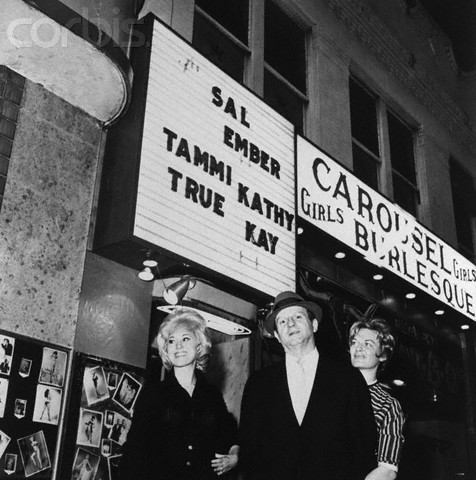
I was nine years old when I saw the killing on TV. It was both shocking and unreal. As I mentioned before the killing of President Kennedy was my first real death experience. Even though it occurred in front of a standard 8mm camera, and I for sure never met or knew Kennedy, but he was the first person who ‘died’ in my life. At that time, I don’t think I even had an animal or pet that passed away in my presence. So death was very abstract to me. The Jack Ruby shooting was the ‘second’ death that I experienced in my young life at the time. One can just wonder what the relationship was between Oswald and Ruby. Did they know one another? Again, I like to believe that these things just happen. The thought appeals to my sense of aesthetic - and that is the reason why I like the “Sherlock” show so much, because it does portray a world that is mapped-out to the extreme, and does show a meticulous order to the world. But in reality, (or in my reality), Holmes and Moriarty do things out of boredom. And I can be associate with monotony as a writer. My number one fear is boredom. Writing to me is a form of traveling but not necessary means getting on the plane or car to go from one location to the next. For instance, readers can presume I was in Japan, but are you sure that I was there?

Published on March 25, 2014 06:17
March 23, 2014
Sarah Gerard's Commentary on Boris Vian's Red Grass
RED GRASS BY BORIS VIAN, TRANS. BY PAUL KNOBLOCH - WHY THIS BOOK SHOULD WIN22 MARCH 14
sEE THE ORIGINAL WEBSITE: http://www.rochester.edu/College/translation/threepercent/index.php?s=btbSarah Gerard’s novel Binary Star is forthcoming from Two Dollar Radio in January 2015. Her essay chapbook, Things I Told My Mother, was published by Von Zos this past fall. Other fiction, criticism and personal essays have appeared in the New York Times, New York Magazine, Bookforum, the Paris Review Daily, the Los Angeles Review of Books, Slice Magazine, and other journals. She holds an MFA from The New School and lives in Brooklyn.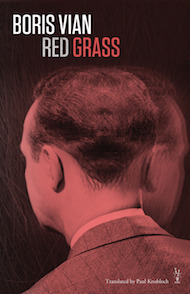 Here’s why Boris Vian’s
Red Grass
should win the Best Translated Book Award: the odds are stacked against it. It’s not the second volume in a six-volume epic; it doesn’t have the sex appeal of Sauvageot; nor does it have the audience a Marias novel is guaranteed; nor the counter-culture appeal of Krasznahorkai; and Vian himself enjoyed limited authorial success during his lifetime. Red Grassis strange, and Vian is, and has always been, just outside of what’s easily co-opted by “cool.” But this book is unrivaled in its inventiveness.Lysergic and science fictional, psychological and sexually uncomfortable, Red Grass follows Wolf, an engineer who has invented a machine to erase memory, through phase after phase of painful self-exploration and deletion. Simultaneously, Wolf’s mechanic partner, Saphir Lazuli, confronts his inability to make love to his wife; a talking dog talks himself into enlightenment; and Wolf’s and Lazuli’s wives find themselves having to cover up a strange disappearance. It all takes place in a world not quite our own, somewhere in a time long after ours or in an alternate present day, where the grass is blood red and the sky is within reach, and the seams of the known world are strained to the point of breaking. Adults are childishly naïve but able to carry out acts of government, and assemble complicated apparatuses with which to perform impossible tasks. Death is seeping in from all corners, threatening a world not unlike a futuristic Oz.Lest we forget that we’re here discussing an award for translation, I’d like to take a minute to tip my beret to Paul Knobloch, Red Grass’s translator. Vian combines and invents words, and is at all times vivid, his tone vacillating within the intersection of imminent tragedy and wit, unimaginable pain and fear, and delight, and wonder:
Here’s why Boris Vian’s
Red Grass
should win the Best Translated Book Award: the odds are stacked against it. It’s not the second volume in a six-volume epic; it doesn’t have the sex appeal of Sauvageot; nor does it have the audience a Marias novel is guaranteed; nor the counter-culture appeal of Krasznahorkai; and Vian himself enjoyed limited authorial success during his lifetime. Red Grassis strange, and Vian is, and has always been, just outside of what’s easily co-opted by “cool.” But this book is unrivaled in its inventiveness.Lysergic and science fictional, psychological and sexually uncomfortable, Red Grass follows Wolf, an engineer who has invented a machine to erase memory, through phase after phase of painful self-exploration and deletion. Simultaneously, Wolf’s mechanic partner, Saphir Lazuli, confronts his inability to make love to his wife; a talking dog talks himself into enlightenment; and Wolf’s and Lazuli’s wives find themselves having to cover up a strange disappearance. It all takes place in a world not quite our own, somewhere in a time long after ours or in an alternate present day, where the grass is blood red and the sky is within reach, and the seams of the known world are strained to the point of breaking. Adults are childishly naïve but able to carry out acts of government, and assemble complicated apparatuses with which to perform impossible tasks. Death is seeping in from all corners, threatening a world not unlike a futuristic Oz.Lest we forget that we’re here discussing an award for translation, I’d like to take a minute to tip my beret to Paul Knobloch, Red Grass’s translator. Vian combines and invents words, and is at all times vivid, his tone vacillating within the intersection of imminent tragedy and wit, unimaginable pain and fear, and delight, and wonder:
sEE THE ORIGINAL WEBSITE: http://www.rochester.edu/College/translation/threepercent/index.php?s=btbSarah Gerard’s novel Binary Star is forthcoming from Two Dollar Radio in January 2015. Her essay chapbook, Things I Told My Mother, was published by Von Zos this past fall. Other fiction, criticism and personal essays have appeared in the New York Times, New York Magazine, Bookforum, the Paris Review Daily, the Los Angeles Review of Books, Slice Magazine, and other journals. She holds an MFA from The New School and lives in Brooklyn.
 Here’s why Boris Vian’s
Red Grass
should win the Best Translated Book Award: the odds are stacked against it. It’s not the second volume in a six-volume epic; it doesn’t have the sex appeal of Sauvageot; nor does it have the audience a Marias novel is guaranteed; nor the counter-culture appeal of Krasznahorkai; and Vian himself enjoyed limited authorial success during his lifetime. Red Grassis strange, and Vian is, and has always been, just outside of what’s easily co-opted by “cool.” But this book is unrivaled in its inventiveness.Lysergic and science fictional, psychological and sexually uncomfortable, Red Grass follows Wolf, an engineer who has invented a machine to erase memory, through phase after phase of painful self-exploration and deletion. Simultaneously, Wolf’s mechanic partner, Saphir Lazuli, confronts his inability to make love to his wife; a talking dog talks himself into enlightenment; and Wolf’s and Lazuli’s wives find themselves having to cover up a strange disappearance. It all takes place in a world not quite our own, somewhere in a time long after ours or in an alternate present day, where the grass is blood red and the sky is within reach, and the seams of the known world are strained to the point of breaking. Adults are childishly naïve but able to carry out acts of government, and assemble complicated apparatuses with which to perform impossible tasks. Death is seeping in from all corners, threatening a world not unlike a futuristic Oz.Lest we forget that we’re here discussing an award for translation, I’d like to take a minute to tip my beret to Paul Knobloch, Red Grass’s translator. Vian combines and invents words, and is at all times vivid, his tone vacillating within the intersection of imminent tragedy and wit, unimaginable pain and fear, and delight, and wonder:
Here’s why Boris Vian’s
Red Grass
should win the Best Translated Book Award: the odds are stacked against it. It’s not the second volume in a six-volume epic; it doesn’t have the sex appeal of Sauvageot; nor does it have the audience a Marias novel is guaranteed; nor the counter-culture appeal of Krasznahorkai; and Vian himself enjoyed limited authorial success during his lifetime. Red Grassis strange, and Vian is, and has always been, just outside of what’s easily co-opted by “cool.” But this book is unrivaled in its inventiveness.Lysergic and science fictional, psychological and sexually uncomfortable, Red Grass follows Wolf, an engineer who has invented a machine to erase memory, through phase after phase of painful self-exploration and deletion. Simultaneously, Wolf’s mechanic partner, Saphir Lazuli, confronts his inability to make love to his wife; a talking dog talks himself into enlightenment; and Wolf’s and Lazuli’s wives find themselves having to cover up a strange disappearance. It all takes place in a world not quite our own, somewhere in a time long after ours or in an alternate present day, where the grass is blood red and the sky is within reach, and the seams of the known world are strained to the point of breaking. Adults are childishly naïve but able to carry out acts of government, and assemble complicated apparatuses with which to perform impossible tasks. Death is seeping in from all corners, threatening a world not unlike a futuristic Oz.Lest we forget that we’re here discussing an award for translation, I’d like to take a minute to tip my beret to Paul Knobloch, Red Grass’s translator. Vian combines and invents words, and is at all times vivid, his tone vacillating within the intersection of imminent tragedy and wit, unimaginable pain and fear, and delight, and wonder:From superior regions fell vague tracks of brilliant and elusive dust, and the imaginary sky palpitated endlessly, pierced by beams of light. Wolf’s face was sweaty and cold.And
Outside, the wind began to stir. Little vortexes of dust rose obliquely from the ground and ran through the weeds. The wind caressed the beams and angles of the roof and at each curve left behind a living screech, a sonorous spiral. The window in the hallway suddenly slammed down without warning. The tree in front of Wolf’s office shook and sung incessantly.And
And in fact, Wolf couldn’t answer right away. He swung his club and amused himself by decapitating the grimacing fartflowers that popped up here and there along the rednecking field. From each decapitated stem oozed a black sap that formed into a little black and gold monogrammed bubble.Every part of this world is alive and moving, struggling, begging. Of all of Vian’s novels, Red Grass is the most uncharacteristically dark. When he wrote it, he was in the midst of a serious marital crisis that would ultimately end in separation. And unlike the success he had achieved with previous novels, Red Grass would not find publication until several years after it was written, and only then with a small, unknown publisher. Vian’s career as an author would never recover from this.As an added note about his life, which might shed light on the personality behind the incredible book that is Red Grass and Vian’s many, many other works: he called himself not only novelist, but also poet, jazz musician, singer, actor, screenwriter, translator, critic, and inventor. He was the protégé of Raymond Queneau, the translator of Raymond Chandler and others, the one-time friend of Camus, de Beauvoir, and Sartre (before his wife’s infamous affair with the philosopher, which ultimately ended their marriage), the first French rock-and-roll songwriter, and, as if that weren’t enough, he ghost-wrote in the persona of an African-American author while masquerading as his translator, penning a book that would become a cult classic in its day.I know the stakes for the Best Translated Book Award are high this year. I also know that, in only a few days, I’ll have to write another one of these posts, arguing that a different book should win, and I’ll mean it then, too. But let’s not forget that Red Grass is ready for an audience who will read and appreciate it, and feel disappointment when some heavyweight comes along and again takes what is Vian’s. No one else wrote like him, and the task of a translator is unlike any other when he is translating Vian. For my part, my vote lies with him.
Published on March 23, 2014 20:40
March 24, 2014

March 24, 2014
Today I’m leaving Tokyo, and today I’ll be back in Los Angeles. My wife and I made a decision to live here in Tokyo and in Los Angeles as well. We have a home here, or I should say a very small room. I’m looking forward to my dual-life of being a Tokyoite and an Angeles man. As I get older (and I’m old) my life is just about to enter a great adventure. For my whole life, I often felt like Steve McQueen in “The Great Escape.” As a kid, I went to see that film at least five times in a movie theater. I think being an only child, I sort of identified with the McQueen character. For some reason I suspected that he too was a single child. In fact, I heard he had a rough childhood. Mine, on the other hand was the life of a prince. Nevertheless, I was quite attracted to the image of McQueen on a motorcycle trying to escape from the prison camp in the film. I haven’t seen the film for decades, and I don’t think I really want to re-visit the images, because they’re so strong in my head.

As a child in Beverly Glen, I would often see Steve McQueen on a motorcycle driving through the canyon. One time I was having lunch with my dad, when all of a sudden he appeared in the cafe. He looked exactly like his character in “The Great Escape.” In fact, my memory of him that day was his wearing a sweatshirt and khaki pants. He also had a leather jacket on, because he was riding his motorcycle. Through out my life I have seen images from films, and come upon them in real life. It is still disconcerting to see an actual image in front of you coming to life.
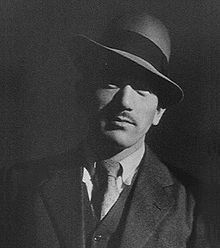
Tokyo is the same way with me. I know that city through films. Mostly by works of Ozu and Kurasawa. Whenever I see a structure from the 1950s I sort of feel star-struck at its appearance. The film world of Tokyo is exactly the same as when one is here. Los Angeles can be altered in the cinema world, but for some reason Tokyo remains Tokyo no matter what. Even with The Godzilla films, the Tokyo that is displayed as little models is very much the Tokyo I know. I don’t know why, but the city can’t help being what it is - Tokyo!
Published on March 23, 2014 17:11
March 22, 2014
March 23, 2014 (Tokyo)

March 23, 2014
Writing tools mean so much to a writer, and yet, is anything better than pen and paper? The digital world is wide open for so many choices. Yet I suspect preservation is not part of the bigger points in digital life. The fact is one can own a paper and a pen, but who owns the digital world? When I put my blog up, do I own that blog? What happens if Google disappears tomorrow or something in the natural world knocks the power off the Internet. Is keeping the documents and your writings that secure? Or is it a false security?
I’ve purchased Pages app when I bought my computer last year. Usually in the past, all of that will come with the latest computer, but now we have an app store, and we are required to purchase the basics just to have a functioning writing machine. But when that app fails to operate or refuses me to get to my work, is that a good thing at all? In the nutshell, when you have that pen and paper it can be devastated by numerous means. But a great percentage, is that if you lose that document or pen, it is because of you. Now, technology is selling itself as the end-all of everything, and that everything will be guaranteed for you. But that ladies and gentlemen, is a total lie.
Right now I feel like a character in a Michael Haneke film - perhaps “Funny Games” where my home is not being invaded by thugs, but my writing instruments on my computer are for sure under attack. The feeling is that I have nothing but my writings, and once that is gone, I really don’t exist. But perhaps that is the bigger sense of nature at work. We’re only here for a series of moments, and then one disappears. I think its human to try to leave something on this planet before one fades away. Either a family, a son, a daughter, a painting, and in my case, it would be my words on either a screen or in a book. But alas, there is no guarantees that will happen.

My vision is just one of pure hell if I can’t express myself. Facebook to me is a device to expose my work to some sort of public. And one does not know who or what that public is. But even Facebook, can disappear, and with that, all the work that was carried out on one’s page. It’s interesting that there are so many pages still open, even though that individual has passed away. It’s a sad memorial, but a false one as well, because we don’t own those pages, they are only there for a brief time, and nothing will last forever.
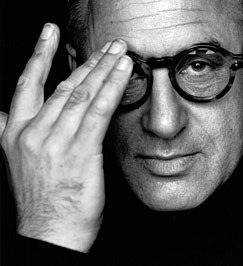
With that in mind, I put my headphones on and listen to Michael Nyman’s fantastic score to “A Zed & Two Noughts” which is a film by Peter Greenaway. I’m now praying for a world that resembles a Greenway film, but that fantastic score as well.
Published on March 22, 2014 17:46
March 21, 2014
March 22, 2014 (Tokyo)
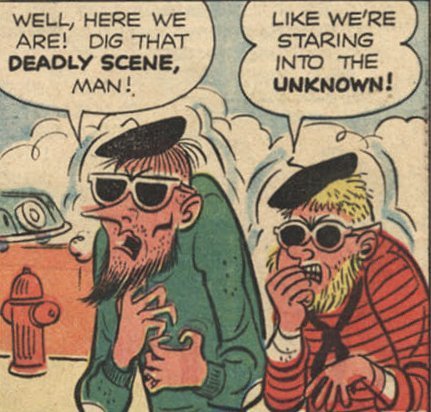
March 22, 2014
From pulp writer of westerns Louis L’Amour to composer Stephen Sondheim I hope to find my center somewhere between those two artists. I have a boundless admiration for L’Amour, because he wrote 100 novels, and there is something magical about Sondheim’s input as a theater composer as well. Sondheim is probably the best known figure in modern (and quality) theater, and I ….want to be placed among those two giants. The bitter truth is that I am not as good as those two.
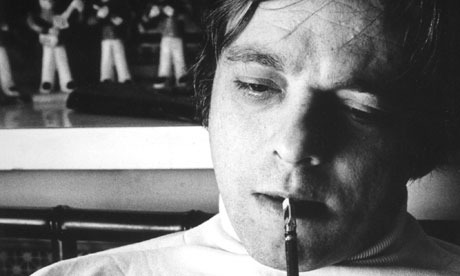
It is not certain at this moment that I will be awarded the Nobel Prize for literature, since at this moment and time, I only have one book published and one out-of-print volume of poetry. To my wife and I we feel that alone should guarantee me at least a shot at the big prize. To write in this day and age is only two steps away from total disaster on many fronts. First and the most obvious is the financial aspect of being a writer - which I can only see now is non-existent. I abandoned my job at a bookstore to totally focus on what’s in my head and obsessing how to get those thoughts on a piece of white blank paper. So far, the blank piece of white paper is winning the battle. But alas, there are many battles in a war, and I shall become a victor!

As of now, I live my life like Chico Marx, in that I have to hustle, gamble, and sneak money from every avenue and road that lay in front of me. The one image in my head when I wake up in the morning is the Nobel Prize and the second image is of the same thing when I go to sleep at night.
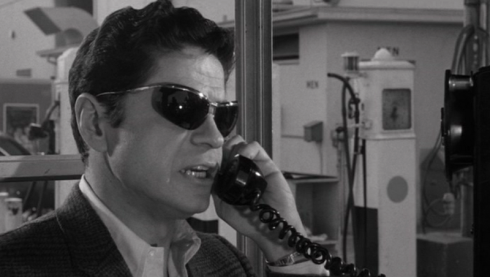
For inspiration, I often think of the actor Ross Martin who played Artemus Gordon in the great western TV show “The Wild Wild West.” What I loved about him is that he’s the side kick to the James West character, but it strikes me that he is sort of an Iago to Othello, that he’s actually the main character of the narrative, but is hiding in plain sight. Writing to me, is someone who appears to be invisible, but alas, they are there reporting what’s in front of them. The art of the writing is finding out what you should pick out in front of you. Right now, from my angle of the writing table, I see a book of art by Yayoi Kusama, but the color scheme is inappropriate for my sense of aesthetic, even though I do have a great appreciation for her art and focus in life. The ‘visual’ life is of great importance to me, because when I take my daily walks through Tokyo, I often think of the cartoon strip “Little Lulu” which was created by a genius named John Stanley. Her observations on a daily basis saves the day for her and her friends in the strip, and I think to myself “if only I can do that in my life for me and my friends.” Would it be possible to write a work of fiction, and somehow the world will turn out better, and therefore I will win the Nobel Prize for that alone?”
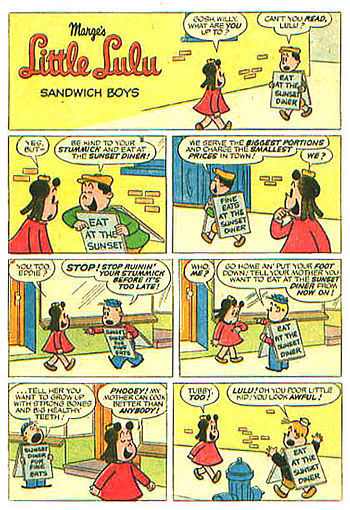
Common sense tells me that I will fail miserably. But failure alone is interesting. I’m one of the very few people on this planet that actually likes the Keith Relf solo recordings more than his band, The Yardbirds. And for sure his solo work was one of the significant failures in 1960s pop music. So my next thought is can I fail, but fail on a grand scale, where people and readers will notice me?
Published on March 21, 2014 18:19
March 20, 2014
March 21, 2014 (Tokyo)
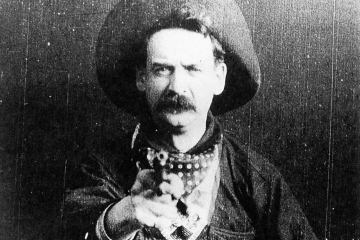
March 21, 2014
I can’t even imagine what it was like to be in a movie theater in 1903 and to see “The Great Train Robbery, ” starring Broncho Billy Anderson. The film was written, produced, and directed by Edwin S. Porter, and Broncho Billy played at least three roles in this ten minute film. The film is renowned for its composite editing, camera movement and on location shooting. Also perhaps the first to use cross cutting, where two scenes are taking place but at the same time. “Broncho Billy was the first cowboy movie star, and to think that was only 111 years ago!
Cinema has consistently been a big part of my life. Ever since my dad took me to see Roger Vadim’s “And God Created Woman.” I think I was around three years old at the time, and my dad wanted to see this film badly, and it was playing at a small movie house (still there I believe) in Larkspur California. It was an odd experience for me because me going to the movie turned out to be a huge argument between my dad and the manager at the theater. He just wanted to refuse me entrance, due that I was a child, but my father insisted that he had every right to take his son (even though at 3) to see this Bardot experience. After making a fuss, and not compromising his stand, I was let in. What happened afterwards led me to a life-long love for Brigitte Bardot. In the nutshell, it also led me to Boris Vian, because Vadim was a friend of that genius and social light of Saint-Germain des Prés.

Bardot’s sexuality on the big screen and Broncho Billy aiming his gun towards the audience in “The Great Train Robbery” had the same effect on me. I was nicely devastated over the experience and to this day it has been a major influence or even fuel for my writings and thoughts. As a young adult, I became a huge fan of Russ Meyer’s work as well. To some he’s the ultimate sex film exploration filmmaker, but I have other thoughts about him than his reputation. What I really admire him for is his ability to take one to another world, and that landscape is Meyer-world. It has its own logic, rules, and aesthetic. I think it's similar to something like “Star Wars” or “The Hobbit.” Those types of films make their own world, and one enters that world knowing that they are going to live there. I feel exactly the same with Meyer, because being in his presence (via his films) I’m transported into a place that makes no sense to me, and that is the sole reason why I love his work so much.
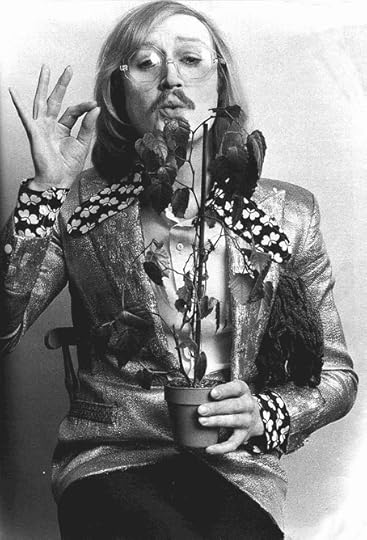
I tend to love artists who transport me to their world, and I have to see everything through their eyes. The late and great Vivian Stanshall was another artist who made me appreciate the finer eccentricities of the British state of mind. Perhaps he was insane, but I totally understood the world, regardless of the fact that some of his commentary was totally foreign to me. But as they say in gangster films, I got the ‘drift’ of it all.
Published on March 20, 2014 18:56
March 19, 2014
March 20, 2014 (Tokyo)

March 20, 2014
As I woke up freezing cold this morning, thinking when the hell will spring come to Meguro, I realized that it was nineteen years ago that the Subway Sarin Incident took place on the Hibya Line in Tokyo. At the time I was (and still am) went back and forth to Tokyo, but when I lived in Ebisu, I would take the Hibya Line to Roppongi to my favorite record store at the time, The Wave which was located in their own building on Roppongi Dori. There were two shocking incidents for me. One is the Sarin attack on the subway, and the other is the disappearance of The Wave building. This was a six-story building, where each floor was allocated for a specific type of music. In the basement they showed films from Europe, and the top floor had one of the best bookstores I have ever been to. At the time, the Seibu department store brought a certain amount of culture as well as shops in its empire like touch on the retail world. For instance, they would have a theater on the seventh floor in their department store where they showed nothing but ‘underground’ or avant-garde theater or exhibitions. That all has changed due to the economic bubble bursting during the late 90s. And on top of that was the Sarin attack on innocent Tokyo citizens.

The Hibya Line runs from Naka-Meguro in Meguro and Kita-Senju in Adachi. It is actually a perfect line because it reaches hot spots such as Roppongi, Ebisu, and Kayabachō. So logically, this would be a perfect spot for a terrorist to take action on. I remember being totally shocked that something like this can take place in Tokyo. For most people in my world, 9/11 is the date where the world changed for them, but for me it was clearly what the Japanese officially call the Subway Sarin incident. It is widely known that the attack was made by an outsider group called Aum Shinrikyo (now known as “Aleph”). The movement was created by Shoko Asahara, and it started off as a yoga and meditation class. Eventually over a short period of time it had grown up to become a terrorist organization. Like a lot of spiritual groups, the leader conveys himself as “Christ.” And then as they say in a fairy tale, all things start to rot from the inside to the outside.
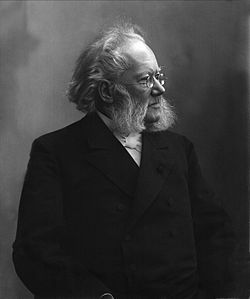
Tragically thirteen were murdered by the attack, and at the very least (as it was last reported) up to 1,300 people were wounded from the incident. Again, I have difficulty getting my head around why anyone would want to do this for whatever their reason is. Mr. Asahara, is like any other egotist, who sees the world in a certain light and needs to convey that point-of-view at all costs. Then there are others like the Norwegian playwright Henrik Ibsen, who has an insightful point-of-view of how society and culture works. In his play “,An Enemy of the People” (original Norwegian title: En folkefiende) is about a doctor in a small town that realizes a lot of the illness is coming from the local business which is the public baths. Many of its citizens and even more important, many tourists are coming to this town for these ‘public baths.' The Doctor finds out that actual waste material is contaminating the local waters which in turn, affects the local baths community. As the doctor brings the news up, the industry and the public refuse to listen to him. Due to the fact that the main economy comes from these baths.
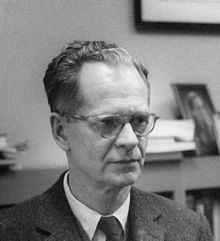
Shockingly enough, this is exactly the same situation we are in now with the climate warming as well as the various issues of the nuclear industry. Health and well-being for its citizens vs. the economy. The majority of the population usually sides with the economy when it comes to the issues of public health against the money-making machines that are out there. It comes to mind the eminent psychologist and behaviorist B. F. Skinner, who saw ‘free will’ as an illusion. He believed in the reinforcement system where if the consequences were bad, there were chances that the behavior would not be repeated. If they were good, then the consequences will be allowed. I think the economic system is sort of based on this theory. Economic wealth or health is more important than emotional or physical health to many. So therefore, most citizens would side with those who promise either the illusion of wealth or the actual delivery of the physical goods. Skinner invented a laboratory apparatus known as the “Skinner box” where animals, like a rat is tested with respect to positive and negative reinforcement. Ironically enough, a lot of slot machines and online games are built on the Skinner box theory.

I often think that shows from the 1950s and 1960s such as The Adventues of Ozzie and Harriet, which had a long run as a series on the ABC network from 1952 to 1966. It was a real family, yet contained as a fictional TV show as sorts. I often thought of that the show as an entertainment version of the Skinner box. Also I think a lot of reality TV shows are built on the same premise as well. It is interesting that when we have that scratch, and we scratch it, the evil just pours out of our system.
Published on March 19, 2014 19:31
March 18, 2014
Marhch 19, 2014 (Tokyo)

March 19, 2014
Whenever I go on a long trip, like to Japan, for instance, I like to imagine myself as Richard Francis Burton, the great British explorer, spy, a man who can speak 29 languages, translator, poet, orientalist, soldier, and some say a sex fiend. More than imaging myself, I decided to study Japanese as my first language after English, which I am still grappling with. Even though I was born in America, and have been an American for the last 59 years, I am still overwhelmed with the difference between the words “has” and “have.” Nevertheless I made a decision to study Japanese and then perhaps go into French language studies. I purchased a Japanese language application for my computer and within ten minutes became terribly bored with it.
With respect to the Japanese language, I discovered when I am by myself, I can easily feed myself in a country, where English is another language. Luckily I found a sushi place near where I’m staying in Meguro that when you sit down, a piece of sushi comes to your seat on a conveyor belt. All you have to do is pick it off from the belt, and eat it. Once you are finished, they (not you) count the dishes, which are priced differently and they can tell by the design of the plate, what the price is. As a practice, I always give them the biggest currency bill as possible. This way, I don’t have to look for coins in my pocket, nor look embarrassed trying to find the exact amount for the bill. The thing is, I want to look like I fit in Japanese society as effortlessly as Richard Burton did when he traveled in the Middle East.
Before I came to Japan, my only knowledge of this country was through the film “Merry Christmas Mr. Lawrence, ” which by the way, I don’t recommend as an introduction to Japanese culture. On the other hand, like other eminent orientalists from the past, I imagine myself as a distinguished explorer, especially when I go shopping in Shinjuku for used vinyl or CDs. What I mostly find is the complete works of Terry Hall, who was (and is) the lead singer for The Specials. Since the 1980s, he has been around in various band line-up’s making intriguing music. A person who I feel was in the right place and at the right time.
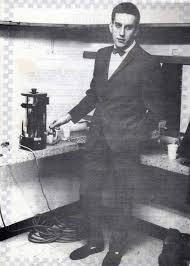
Terry Hall always reminded me of the actor Patrick McGoohan, who starred in the TV shows “Danger Man” (aka “Secret Agent Man” in the U.S.) and the classic “The Prisoner.” Both artists I felt came from a very British perspective on life in the U.K. and sometimes beyond, but with a British sensibility. And like McGoohan’s character in “The Prisoner” I often felt like I’m a prisoner here on Japan. Basically this country consists of a series of islands, and the U.K. is looked upon as an island as well. My dream is tantamount to wake up one morning, and I can’t ever escape from Japan.
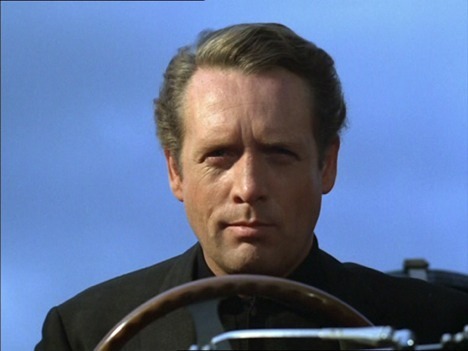
Published on March 18, 2014 19:46
March 17, 2014
March 18, 2014 (Tokyo)
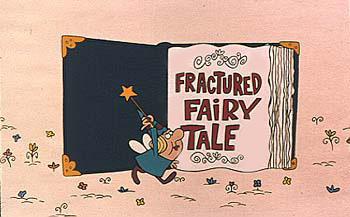
March 18, 2014
One of my all time favorite characters in the film world is Edward Everett Horton. For two reasons alone: the Fred Astaire starring film “Top Hat” and doing a lot of the voices for the cartoon series “Fractured Fairy Tales,” which is part of the great “Rocky and Bullwinkle Show.” I was very much raised by hearing his voice telling or re-telling famous fairy tale stories, but altered by the genius Jay Ward and others. Even that, going to work everyday on the bus I would pass the iconic “Bullwinkle” statue on the Sunset Strip, almost directly across from the equally iconic Chateau Marmont.
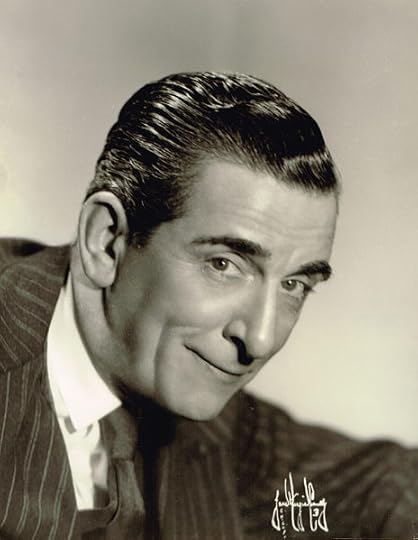
When I was a young teenager, I have a distinct memory of suffering from a severe flu, that kept me in bed for at least a week. My only companion was a portable black and white TV set, that had rabbit ears and more often, lousy reception. This was the moment and place that I saw my first viewing of “Top Hat, ” and due to my fever and mind-set of the time, this film (to this day) has a lot of meaning for me. Due to the bad reception that was very much regular TV viewing in Topanga Canyon, I only saw Fred Astaire, Ginger Rogers, and the great Edward Horton in a screen full of fuzzy images, but also each character and object had a double or shadow, due to the poor reception. Still, it was probably one of the key moments for me, due that I learned elegance through difficult times is indeed a customary way of living.
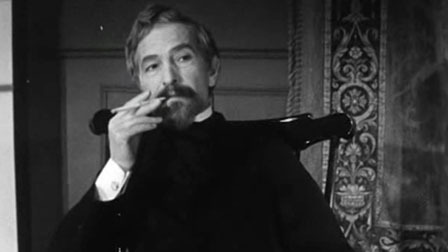
Ever since then, Horton came to me in various methods and ways. He succumbed to cancer in 1970, at his home in Encino, which was not far away from Topanga. I imagine it was around this time I was watching “Top Hat,” and not knowing his last breath was taking place within six miles away from my home. The big appeal for me was his voice, which was very high-pitched, but also sarcastic in its delivery. It was a perfect match with “Fractured Fairy Tales.” For me, it wasn’t the tales themselves that were important, but the delivery of his narrative. I got the feeling that he was relaying another type of story within the fairy tale context. One of my all-time favorite poets is Stéphane Mallarmé, who wrote a piece called “Un Coup de Dés Jamais N'Abolira Le Hasard” (A Throw of the Dice will Never Abolish Chance). Many claim that this French work cannot be translated into English or any other language due to the many layers of textural meaning as well as the sound of the words, which triggers different effects in the piece. Also the poem was laid out in a way where the spacing between the words has just as much meaning as the actual words themselves.
Sometime in the 1960s, Edward Horton made a recording of this poem, both in French and in English. He did the recording for a BBC radio broadcast that was transmitted over the airwaves once. The recording disappeared in thin air afterwards. Some have claimed that the recording was found, but up to this day (moment!) it has never appeared on the Internet. Therefore we have a mystery, and lord knows I love a mystery!

Published on March 17, 2014 18:53
March 16, 2014
March 17, 2014

March 17, 2014
My wife and a close friend of mine, who tragically passed away a couple of years ago, Nick Faigin went to a motel very close to the Los Angeles Airport (LAX) to interview Rudy Ray Moore. It wasn’t clear at the time if he lived at the motel, or was just staying there. Most of his work as a stand-up comedian was in Las Vegas, but it seemed he was trying to raise funds to make another “Dolemite” film. At the time, there were at least three Dolemite films. The original, then came “The Human Tornado, ” and the last was “The Return of Dolemite.” The premise of the films was that Dolemite was framed with stolen goods and had to serve a prison sentence. Once out, a pair of detectives, who framed him originally, are making an effort to send him back to prison. Lucklly Rudy Ray is surrounded by an army of attractive women who are also karate experts.
Rudy Ray was a stand-up comedian, and is seen to be the grandpa of rap, and also very much the king of exploration films. His classic album “The Beatnik Scene” is very much of a collector’s item, and I actually saw a copy of the original vinyl here in Tokyo, but way too expensive for me to purchase. The interview took place and my wife and Nick got along quite well with Ruby Ray. Nick was important part of the interview, because he had encyclopedic knowledge of Rudy Ray’s work and life. I’m grateful for Nick for introducing me to the works of Iceberg Slim as well. At the time, he was working for a porn magazine, and for some odd reason they needed a writer to write about literature. Why Literature and porn together? That was never answered, and may be the reason I worked on this magazine for only one issue. Nevertheless, I wrote the ultimate essay on Iceberg’s work. I reviewed all his book from Holloway House, which at the time can only be purchased from the newsstand on Cahuenga and Hollywood Boulevard.
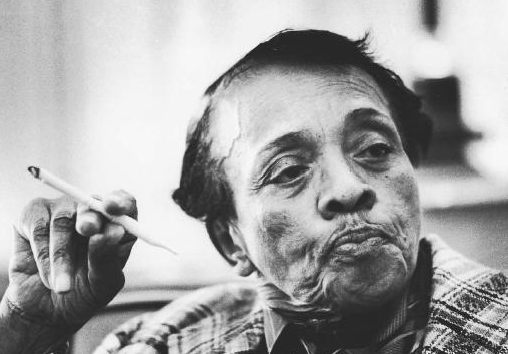
In my mind, Iceberg and Rudy Ray are part of the same world. The tradition of life during the post war years for Black Americans I think was a very rich culture. Not only the music, but the humor of Red Foxx, Moms Mabley, and of course Rudy Ray Moore added to the soup that made their experience so appealing for those who were not part of that world. Being exactly who I am, and only knowing the surface of the black experience, and mostly only through music and films, I have difficulty understanding Rudy Ray’s accent or language. I get the ‘drift’ but not the whole story. But what I gather I am missing is something truly excellent. At home I have all of his DVD’s. A friend of mine told me that the great Russian ballet dancer Rudolf Nureyev, also was a huge Rudy Ray Moore fan. When he first came to the states, he studied American culture through Ruby Ray’s albums. One wonder if that influence has somehow made it up on the ballet stage, but alas, culture is sometimes seeped into one’s DNA, and therefore we will never know for sure.

Published on March 16, 2014 19:30



